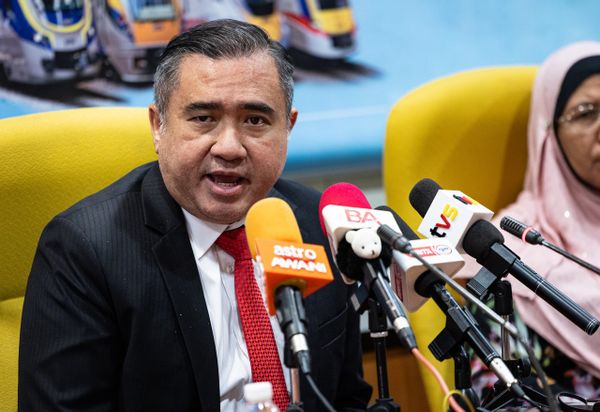KUALA LUMPUR, Nov 4 — Vehicles powered by Natural Gas for Vehicles (NGV) will no longer be permitted for registration or licensing on Malaysian roads from July 1, 2025, Transport Minister Anthony Loke announced today.
He said the Cabinet made this decision on October 2 to prioritise the safety of users and the public, particularly owners of NGV vehicles.
“Based on records, the peak period for NGV vehicle modification and installation of kits was from 1995 to 2014, indicating that the NGV tanks in these vehicles have reached the end of their lifespan and need replacement.
“These NGV tanks have a safe usage lifespan of approximately 15 years. If not replaced, they are unsafe to use and could fail at any time, posing risks of injury, death, and severe property damage,” he said at a press conference on the National NGV Usage Policy here.
He added that some users have modified their vehicles by installing liquefied petroleum gas (LPG) cylinders, which is extremely dangerous and has led to crashes and explosions.
Loke highlighted that LPG cylinders can only handle pressure up to 7 bar/100 psi, compared with NGV tanks that withstand pressures up to 220 bar/3,200 psi.
He noted that replacing components with genuine parts is costly, potentially exceeding RM7,000 per vehicle, while NGV spare parts, especially original tanks, are either no longer available or extremely difficult to source locally.
“We have observed, and received feedback, that some vehicle owners are using second-hand tanks or unapproved modifications, including LPG tanks.
“All of these practices ultimately pose safety risks, injuries, or even fatalities for all users or owners of the affected vehicles,” he added.
Loke said that currently, there are two categories of NGV-powered vehicles in Malaysia, namely, petrol-powered vehicles modified with kits/components for NGV use (dual-fuel) and imported vehicles specifically using NGV (mono-fuel).
According to Road Transport Department (JPJ) data, over 95 percent of registered NGV vehicles fall into the first category.
Loke said there were 44,383 active NGV vehicles over the past three years, comprising 9,509 taxis and rental cars, 32,137 privately registered vehicles, 2,150 buses and trucks, and 587 units of other vehicles/machinery.
Based on this data, NGV vehicles constitute a very small proportion — 0.2 per cent — of the total registered motor vehicles in Malaysia, excluding motorcycles.
Since 2008, there have been six incidents involving NGV vehicles, including a recent case (October 1, 2024) in Bangkok, where a school bus burst into fire and killed 23 teachers and students. It was suspected to have been caused by an illegally installed NGV cylinder.
In addition, Loke announced that the Cabinet has decided for Petronas to gradually end its retail NGV supply in Malaysia, with a complete phase-out from July 1, 2025, along with the implementation of a NGV Vehicle Transition Assistance Programme.
— Bernama




